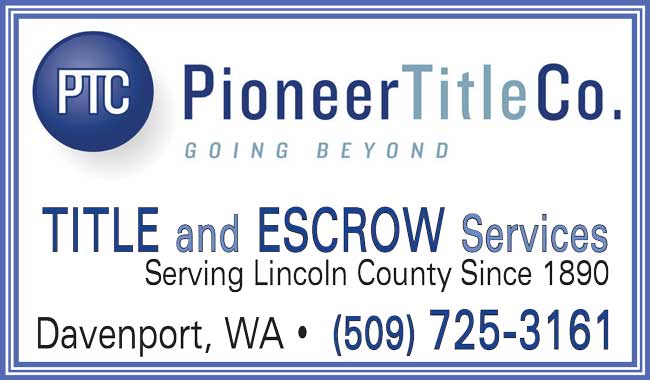Happy 2024, everyone!
I hope the new year is off to a start that is lining up with expectations and without unexpected surprises! Speaking of surprises, there’s no foolproof way to protect your business from unpleasant shocks, but there are some legal strategies that can help minimize the impacts.
A note before we go any further here: I am not an attorney, so consult with your business attorney to make sure that the following guidance fits your scenario.
Speaking of attorneys, here is one thing I’ve observed about that profession: it’s very rare for attorneys to make blanket statements. Almost without exception (see what I did there?), any legal advice is followed up with a caveat, exemption, or qualifying statement.
The above holds true, except when it comes to my interactions with business attorneys and their advice about whether a business should incorporate or not. It’s attention grabbing when I hear a flat-out assertion, with no equivocation, that every business should incorporate.
My take is that attorneys have a finely tuned radar when it comes to assessing risk. And forming a corporate entity for a business reduces risk for the business owner – plain and simple. Most commonly, that corporation takes the form of a limited liability company (LLC).
Let’s look at a hypothetical scenario to illustrate the advantages of incorporating.
Freddy Francisco owns a food truck and operates his business as a sole proprietor, thus lacking a corporate structure for his business. Freddy takes his food truck to a farmers’ market, sells out his entire inventory and has a fabulous event. On his celebratory drive home, the brakes on his food truck malfunction and he blows through a red light, hitting another vehicle and injuring the occupants. Freddy is clearly at fault and the lawsuits start flying. As a sole proprietor, Freddy has no firewall between his business assets (bank accounts, food truck, inventory, etc.) and his personal assets (bank accounts, home, personal vehicle, etc.). In this scenario, Freddy’s business and Freddy’s personal assets are essentially considered one and the same in the eyes of the law.
Freddy is in a tough financial and legal spot, both personally and with his business.
Let’s rewind the clock and assume that prior to heading out to the farmers’ market, Freddy had received a notice that his application for Freddy’s Food Truck, LLC, had been issued. Given the same unfortunate series of events as above, Freddy is now in a very different situation at the end of the evening. Yes, his business assets are still in jeopardy, but his personal assets are shielded by his LLC. That is the very definition of reducing risk.
Put most simply, if something were to go wrong with your business, who do you want people to sue: you AND your business or just your business?
With that question in mind, let’s do a quick compare/contrast of the most common business formation options. The bulk of this content comes from the Washington Department of Commerce’s Small Business Guide (https://www.business.wa.gov/site/alias__business/927/Small-Business-Guide.aspx):
Sole Proprietorships are owned by a single person or a married couple. These businesses are easy to form and there are no special reporting requirements. But, as we saw with Freddy, the owner is personally responsible for all business debts and liabilities, as well as federal taxes.
Limited Liability Companies (LLCs) are very popular, for the reasons we saw with Freddy. Creating an LLC requires filing with the Washington Secretary of State (https://www.sos.wa.gov/corps/). For federal taxes, LLCs are typically treated like sole proprietorships if there is one owner, or like partnerships if there is more than one owner. However, by filing a form with the IRS, LLCs can be treated like corporations for federal tax purposes, which can come with some significant tax advantages.
General Partnerships are like sole proprietorships with more than one owner. Partners share managerial duties, profits and losses, and each is personally responsible for all business debts and liabilities.
Corporations are more complex structures than the others. Complex enough, in fact, that a business attorney should be involved in the process. Enough said there!
Whew. That was a lot of jargon that we just waded through – and that’s just the rough sketch of the landscape. If incorporating sounds like it might be a good path for you, but you are daunted by the legal aspects, here are a couple (free!) options for you:
Gonzaga School of Law’s Business Innovation Clinic. Staffed by second and third-year law students from Gonzaga’s School of Law, the Clinic provides free business-related legal advice. LLC formation lands right in their wheelhouse. Give them call at 509-313-5242 or visit https://www.gonzaga.edu/school-of-law/clinic-centers/law-clinic/business-innovation.
If you want more of a DIY approach, I’d recommend this: StartUp Spokane offers access to LegalGPS, a tool that provides a self-guided course on setting up an LLC. To use LegalGPS, go to StartUp Spokane’s resource list (https://startupspokane.com/resource-list/) and scroll down to find the link to the resource. From there, LegalGPS does a great job of stripping a way legal jargon and getting you familiar with the terminology and concepts of importance.
I hope this helps point your business in a productive direction. Reach out with any questions and I’ll be happy to chat.
Mark Pond, MLIS, has been the Business Research Librarian with the Spokane Public Library since 2006, and, before that, worked in similar capacities for the Seattle Public Library and the University of Washington Libraries since 1998. Mark has led the effort to develop Spokane Public Library into a nationally recognized leader in the field of business research.




